Love conquers leprosy in Luduo village
Updated: 2014-11-20 11:04
(chinadaily.com.cn)
|
||||||||
 |
|
Li Kaiyuan and Lu Chunxiu pose for a wedding photo in Luduo villiage, Yuannan province, Nov 15, 2014. [Photo/CFP] |
If you take Li Kaiyuan's word for it, his marriage this week broke a curse that has been hanging over his seven-member village for 61 years.
On Nov 16, the community of Luduo witnessed its first wedding ceremony, with Li as the bridegroom. The absence of such celebrations is explained by the history of the remote village in Lijiang, Southwest China's Yunnan province.
Luduo was set up in 1953 to quarantine those suffering from leprosy, a bacteria-caused infectious disease that damages skin, eyes and limbs. It is spread via respiratory droplets and as long-term skin contact. For decades, the community has lived in isolation.
Li, now 34 years old, was born healthy and grew up in in Luduo. His mother, the only woman in the colony, was struck with the disease while pregnant in 1979 and was sent to the village months before giving birth.
Because he was the son of a leprosy patient, Li found social stigmas a challenge and he struggled to find a wife. The situation was worse for other villagers who were cured of the disease but left disabled, their injuries ranging from blindness to amputated limbs.
In May, Li met Lu Chunxiu, whose life had been remarkably similar. She came from a nearby village with a severely disabled mother who had also recovered from leprosy. The couple soon found they had shared same interests and outlooks on life. The souls finally bound together.
Leprosy was first recorded in China 2,000 years ago. In the 1940s it was widespread in some of the country's coastal regions and southwestern areas. Since the 1980s, the incidence rate has been on the decrease each year. According to latest data from Chinese health authorities, there were 6,700 cases of leprosy across the country by the end of 2010.
Luduo village was one of 600 leper colonies, most located in remote mountainous areas, the government established in the 1950s when no remedies were found and quarantine was viewed as the best option to protect healthy residents.
In the decades that followed, the Luduo community had more than 120 members at its peak. Now it is left with just seven, with four aged above 70. Nearly half of the patients were reportedly cured and rejoined society, others died.
The colony was relocated twice. It was initially set up on a snowy mountaintop at an altitude of 5,000 meters. In 1979, the 70 members at the time moved down to what is now Luduo village at about 3,500 meters above sea level. In 2013, the remaining seven people moved down further to Daju town.
Although Luduo village is now deserted, Li wanted to be married in his birthplace. So it was that the new couple, in wedding clothes, revisited the place where his childhood was spent among leprosy patients.
"The wedding is nothing but a starting point," said Li, who believes the new family will live a normal and happy life like others.
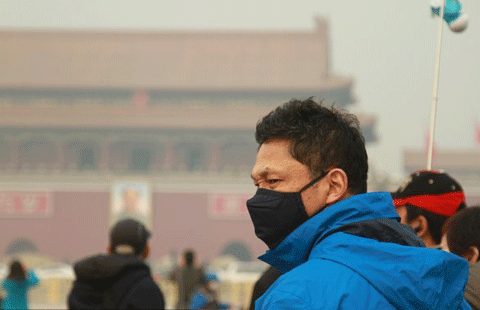
 Smog stages Beijing comeback following APEC week
Smog stages Beijing comeback following APEC week
 Love conquers leprosy in Luduo village
Love conquers leprosy in Luduo village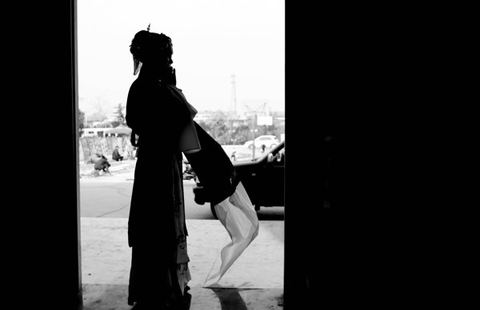
 Peek into the life of Puju performer
Peek into the life of Puju performer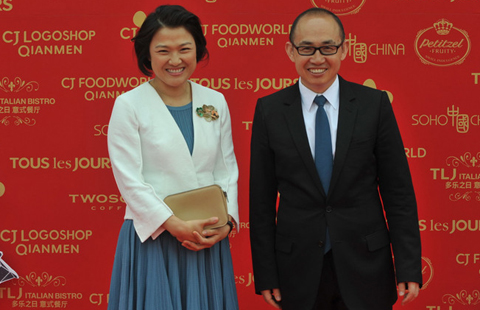
 Top 10 most powerful businesswomen in China
Top 10 most powerful businesswomen in China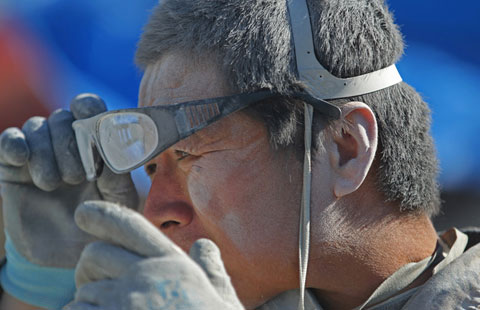
 Life of a stone carver
Life of a stone carver
 Smog stages Beijing comeback following APEC week
Smog stages Beijing comeback following APEC week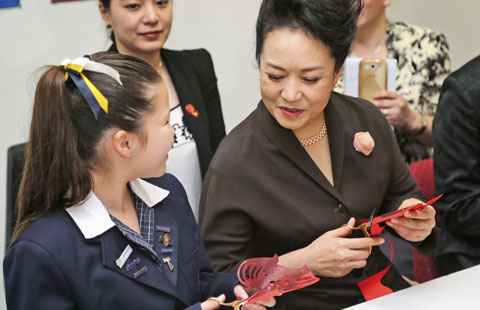
 Peng visits school for girls in Sydney
Peng visits school for girls in Sydney
 Top 10 most powerful businesswomen in China
Top 10 most powerful businesswomen in China
Most Viewed
Editor's Picks

|

|

|

|

|

|
Today's Top News
UN official lauds China's steps on carbon emissions
Man expected in court over deadly subway shove
Jack Ma shares his wisdom at the WIC
Cyber terrorism sparks Internet debate
Expert: US' misconception hinders co-op
Editorial: Mob politics rocks HK
APEC a win-win for US, China
Nations join hands for Antarctic study
US Weekly

|

|







